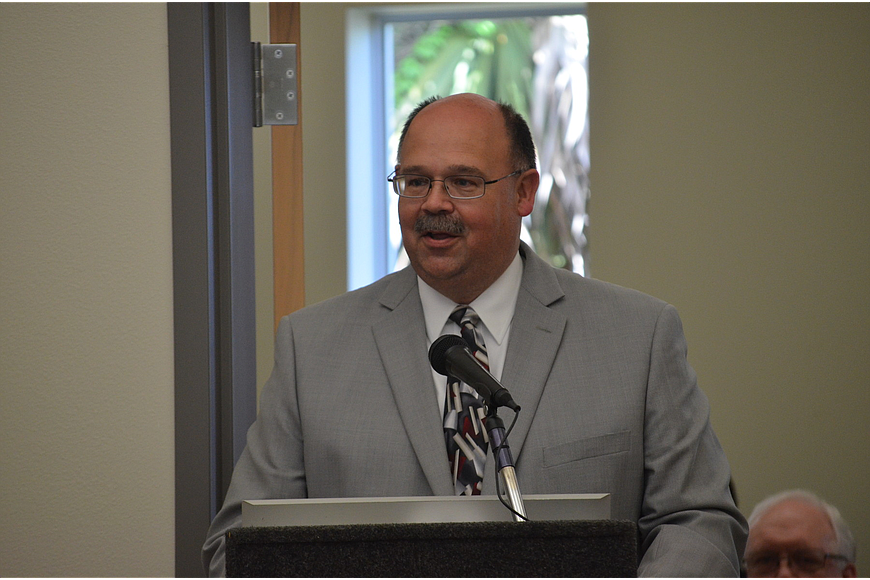- November 27, 2024
-
-
Loading

Loading

The Sarasota County Mental Health Needs Assessment Task Force spent much of 2021 discovering unmet needs in the community and created a report of its findings. The report was presented and approved by the County Commission on Jan. 25.
The goal of the task force, assembled by Sarasota County Health and Human Services Director Chuck Henry, has been to find the priorities for creating a Mental Health Dependent Special District.
“The whole purpose of the district is to create a structure and a system for consistent funding for mental health, substance abuse and behavioral health,” Henry said. “It’s understood that mental health and substance abuse are a big part of the behavioral health system.”
The task force's report, created through analysis, data and surveys, was separated into five areas to narrow down which sectors were found to need the most attention. The areas were categorized as crisis response, treatment and counseling, recovery support, prevention and early intervention, and structural/policy change.
Within each area were specific services that either needed improvement or were found to be strengths, as decided by surveys. The services were then prioritized according to the findings and were presented publicly on Jan. 25.
Read more: Talk turns to millage, other funding sources for county mental health district
“With the board accepting the report, the work this task force was put together for is done,” Henry said. “Now we’re looking at making changes to the governing structure as we begin to fund things.”
Broadly, the task force found that 87% of available resources should be used for the prioritized programs and services, 8% should be used for innovation, and 5% should be used for infrastructure and planning. The discussed budget is $6.5 million, according to the report.
Although the task force consisted of volunteers and their work has been completed, those involved will continue to provide the board with recommendations. One of the top concerns going forward is sustainability because funding for the services would be ongoing.
“The board was rightfully concerned about ensuring sustainability for any program we start,” Henry said. “This isn’t like constructing a building where you build it and you’re done, outside of maintenance. These aren’t programs that can be started and stopped quickly.”
Within the crisis response area, Crisis Stabilization Units and Mobile Crisis Response units were among the county’s strengths. The top priority was found to be further developing a 24-hour walk-in crisis facility as an alternative to hospital emergency departments, followed by adding community crisis and respite beds.
Read more: County leaders adjust plan to spend federal relief money
The treatment and counseling are contained five top-tier priorities in the report, which was more than any other area. These priorities included expanding trauma treatment, increasing psychiatric outpatient capacity, therapeutic group homes for older youth and a specialty care services for high-risk youth.
“We had a great amount of data as a starting point from other quality studies, so the first thing was gathering that and making it available to the task force,” Henry said. “Then we went forward with the questions that weren’t answered from the previous studies.”
Just as mental health troubles can affect other areas of a person’s life, the task force found the same to be true with their needs through their findings for the recovery support area. The top priorities within it pertain to affordable housing for those who need mental health treatment.
The priorities within prevention and early intervention pertained to providing a more-immediate response to youth experiencing crisis. Meanwhile, the report included a full, separate list of priorities within structural changes that elaborated on governance, funding, additional infrastructure and partnerships.
“We’re looking to come back to the board with recommendations on governance,” Henry said. “We’re looking at how to make these funds available in the longer term. Governance is a very important piece in getting these things funded.”
The task force worked together from June to December 2021 to put the report together. The talks of creating a Mental Health Dependent Special District, along with the task force itself, have been in the works since 2019 but were put on pause due to the pandemic.
“We’d be one of the first in Florida countywise to establish a district,” Henry said. “This all started back in 2019, but the talks on it were put on hold because of COVID-19. It goes back quite a ways.”